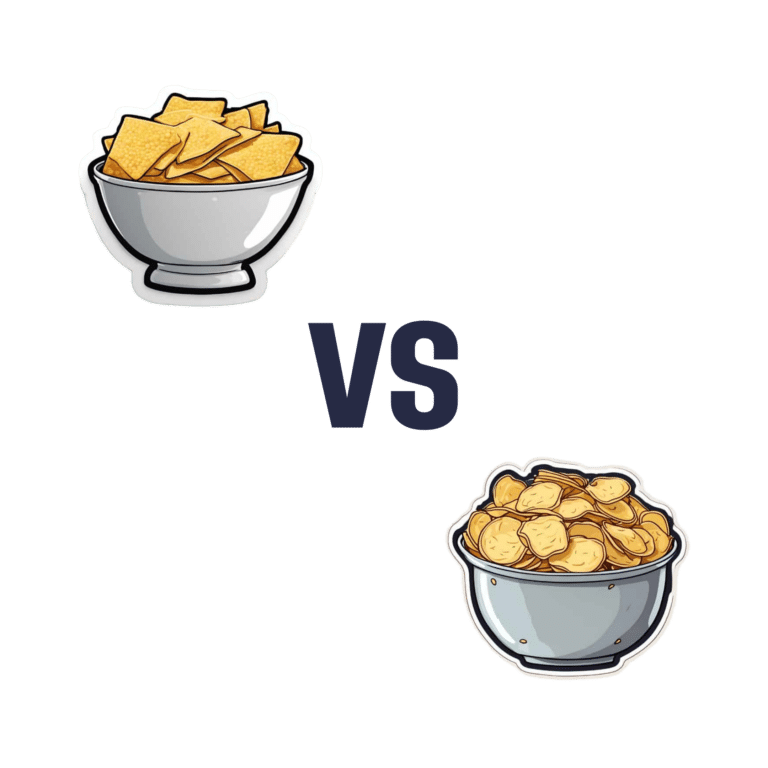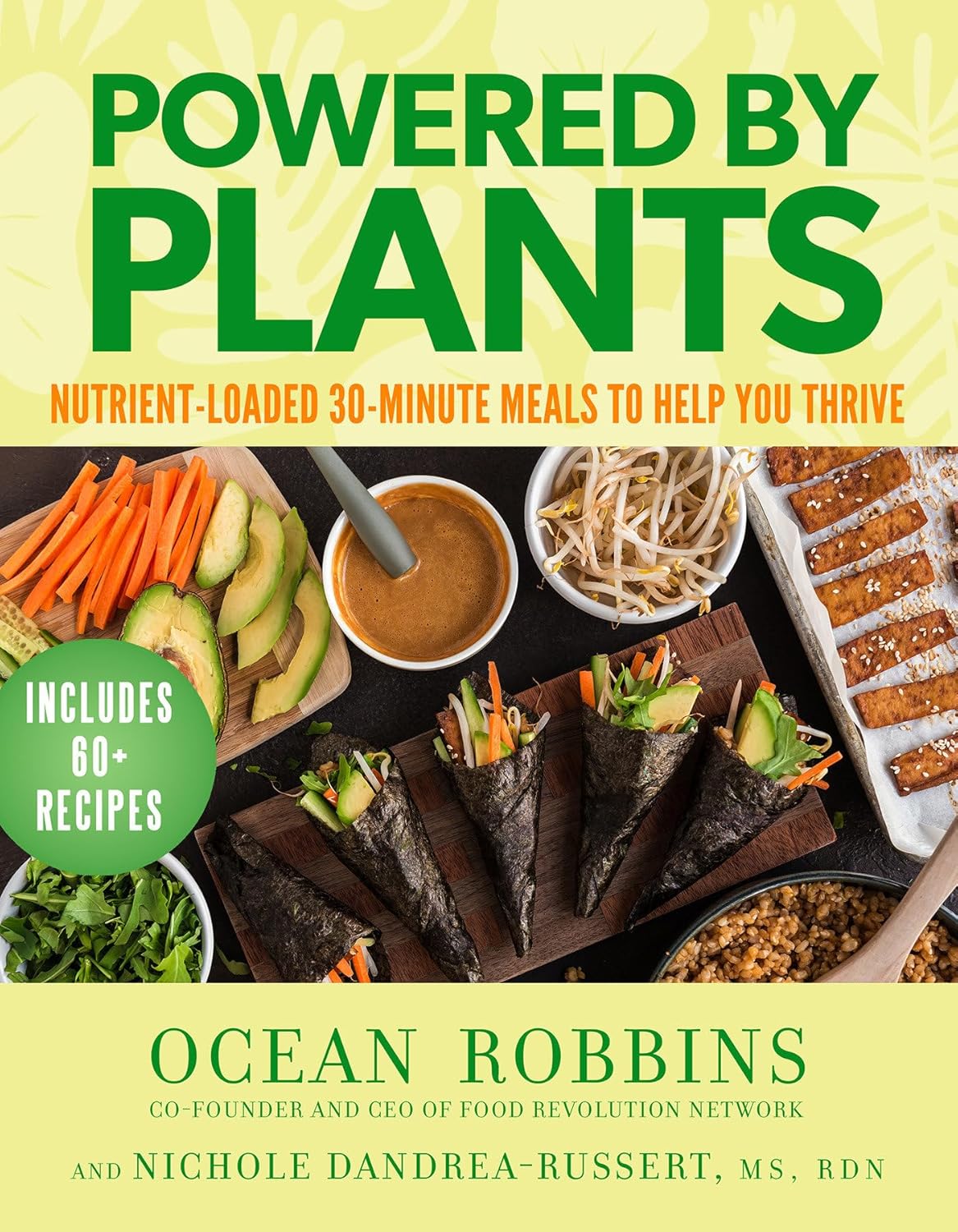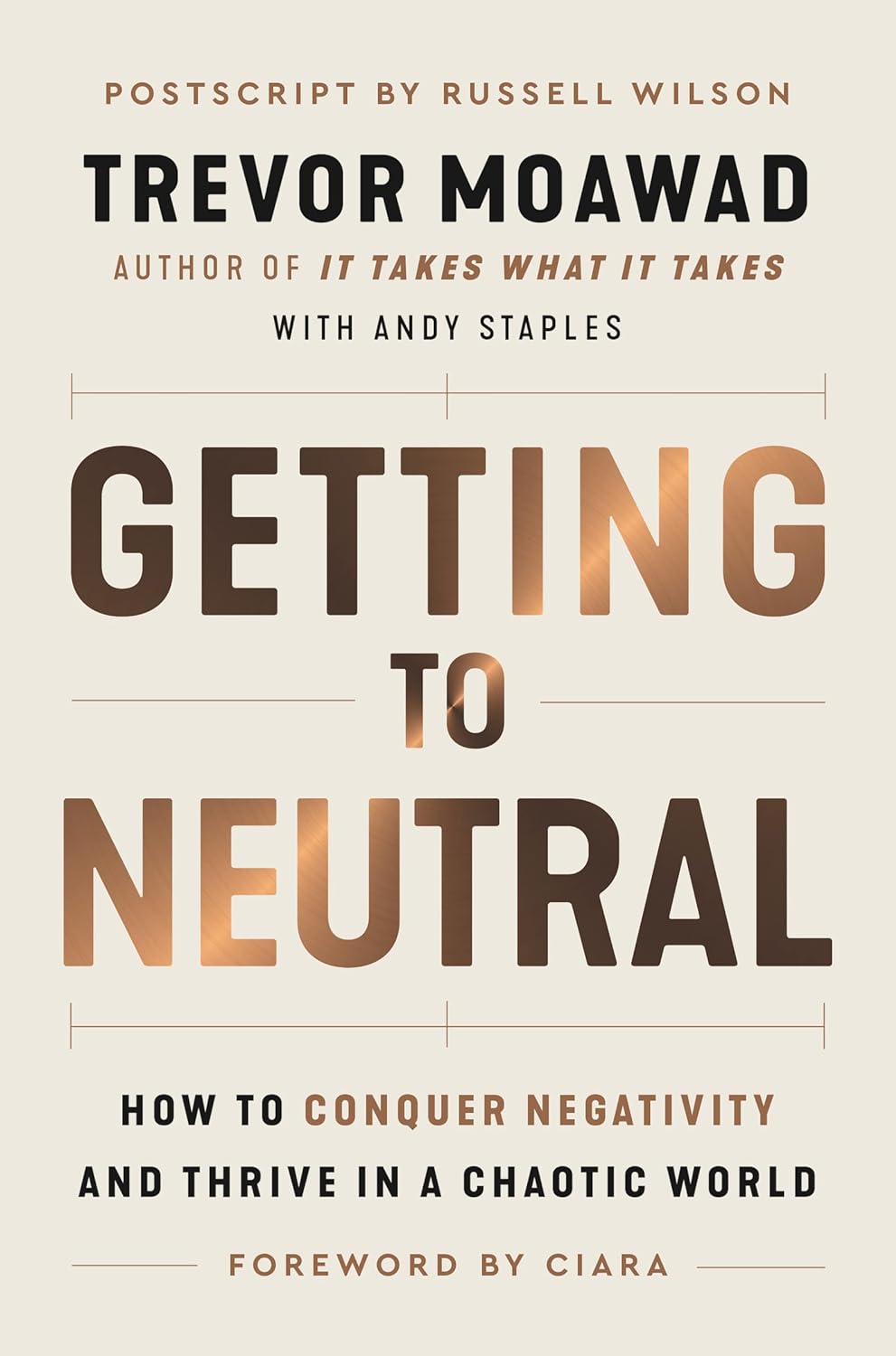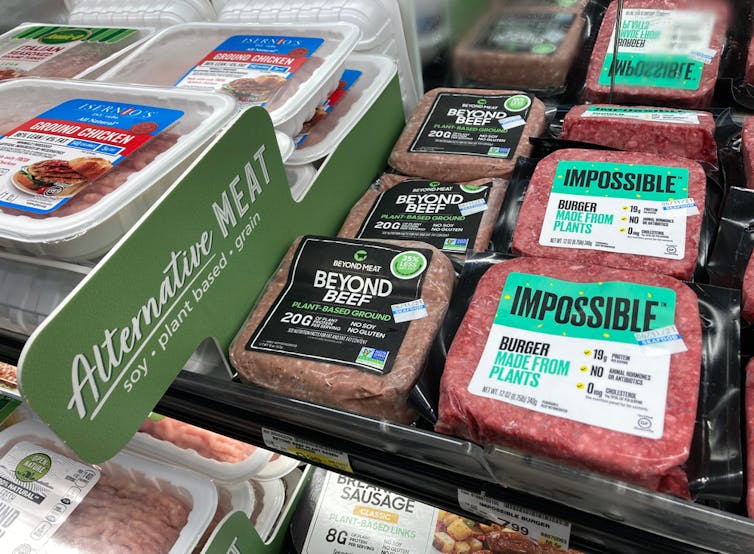
Macadamia Nuts vs Brazil Nuts – Which is Healthier?
10almonds is reader-supported. We may, at no cost to you, receive a portion of sales if you purchase a product through a link in this article.
Our Verdict
When comparing macadamia nuts to Brazil nuts, we picked the Brazil nuts.
Why?
They’re a lot more nutrient dense! But watch out…
First, to do due diligence in terms of macros: Brazil nuts have twice as much protein and less fat, as well as being a little higher in fiber and slightly lower in carbs.
In terms of vitamins, Brazil nuts are about 10x higher in vitamin E, while macadamias are somewhat higher in several B-vitamins.
The category of minerals is where it gets interesting. Macadamia nuts are a little higher in iron and considerably higher in Manganese. But… Brazil nuts are a lot higher in calcium, copper, magnesium, phosphorus, potassium, selenium, and zinc.
About that selenium… Specifically, it’s more than 5,000x higher, and a cup of Brazil nuts would give nearly 10,000x the recommended daily amount of selenium. Now, selenium is an essential mineral (needed for thyroid hormone production, for example), and at the RDA it’s good for good health. Your hair will be luscious and shiny. However, go much above that, and selenium toxicity becomes a thing, you may get sick, and it can cause your (luscious and shiny) hair to fall out. For this reason, it’s recommended to eat no more than 3–4 Brazil nuts per day.
In short… Brazil nuts are much more nutrient dense in general, and thus come out on top here. But, they’re so nutrient dense in the case of selenium, that careful moderation is advised.
Want to learn more?
You might like to read:
Why You Should Diversify Your Nuts
Take care!
Don’t Forget…
Did you arrive here from our newsletter? Don’t forget to return to the email to continue learning!
Recommended
Learn to Age Gracefully
Join the 98k+ American women taking control of their health & aging with our 100% free (and fun!) daily emails:
-
Powered by Plants – by Ocean Robbins & Nichole Dandrea-Russert
10almonds is reader-supported. We may, at no cost to you, receive a portion of sales if you purchase a product through a link in this article.
Of the two authors, the former is a professional public speaker, and the latter is a professional dietician. As a result, we get a book that is polished and well-presented, while actually having a core of good solid science (backed up with plenty of references).
There’s an introductory section that’s all about the “notable nutrients”, that will be focused on in the ingredients choices for the recipes in the rest of the book.
The recipes themselves are simple enough to do quickly, yet interesting enough that you’ll want to do them, and certainly they contain all the plant-based nutrient-density you might expect.
Bottom line: if you’d like to expand your plant-based cooking with a focus on nutrition and ease without sacrificing fun, then this is a great cookbook for that.
Click here to check out Powered by Plants, and get powered by plants!
Share This Post
-
How do science journalists decide whether a psychology study is worth covering?
10almonds is reader-supported. We may, at no cost to you, receive a portion of sales if you purchase a product through a link in this article.
Complex research papers and data flood academic journals daily, and science journalists play a pivotal role in disseminating that information to the public. This can be a daunting task, requiring a keen understanding of the subject matter and the ability to translate dense academic language into narratives that resonate with the general public.
Several resources and tip sheets, including the Know Your Research section here at The Journalist’s Resource, aim to help journalists hone their skills in reporting on academic research.
But what factors do science journalists look for to decide whether a social science research study is trustworthy and newsworthy? That’s the question researchers at the University of California, Davis, and the University of Melbourne in Australia examine in a recent study, “How Do Science Journalists Evaluate Psychology Research?” published in September in Advances in Methods and Practices in Psychological Science.
Their online survey of 181 mostly U.S.-based science journalists looked at how and whether they were influenced by four factors in fictitious research summaries: the sample size (number of participants in the study), sample representativeness (whether the participants in the study were from a convenience sample or a more representative sample), the statistical significance level of the result (just barely statistically significant or well below the significance threshold), and the prestige of a researcher’s university.
The researchers found that sample size was the only factor that had a robust influence on journalists’ ratings of how trustworthy and newsworthy a study finding was.
University prestige had no effect, while the effects of sample representativeness and statistical significance were inconclusive.
But there’s nuance to the findings, the authors note.
“I don’t want people to think that science journalists aren’t paying attention to other things, and are only paying attention to sample size,” says Julia Bottesini, an independent researcher, a recent Ph.D. graduate from the Psychology Department at UC Davis, and the first author of the study.
Overall, the results show that “these journalists are doing a very decent job” vetting research findings, Bottesini says.
Also, the findings from the study are not generalizable to all science journalists or other fields of research, the authors note.
“Instead, our conclusions should be circumscribed to U.S.-based science journalists who are at least somewhat familiar with the statistical and replication challenges facing science,” they write. (Over the past decade a series of projects have found that the results of many studies in psychology and other fields can’t be reproduced, leading to what has been called a ‘replication crisis.’)
“This [study] is just one tiny brick in the wall and I hope other people get excited about this topic and do more research on it,” Bottesini says.
More on the study’s findings
The study’s findings can be useful for researchers who want to better understand how science journalists read their research and what kind of intervention — such as teaching journalists about statistics — can help journalists better understand research papers.
“As an academic, I take away the idea that journalists are a great population to try to study because they’re doing something really important and it’s important to know more about what they’re doing,” says Ellen Peters, director of Center for Science Communication Research at the School of Journalism and Communication at the University of Oregon. Peters, who was not involved in the study, is also a psychologist who studies human judgment and decision-making.
Peters says the study was “overall terrific.” She adds that understanding how journalists do their work “is an incredibly important thing to do because journalists are who reach the majority of the U.S. with science news, so understanding how they’re reading some of our scientific studies and then choosing whether to write about them or not is important.”
The study, conducted between December 2020 and March 2021, is based on an online survey of journalists who said they at least sometimes covered science or other topics related to health, medicine, psychology, social sciences, or well-being. They were offered a $25 Amazon gift card as compensation.
Among the participants, 77% were women, 19% were men, 3% were nonbinary and 1% preferred not to say. About 62% said they had studied physical or natural sciences at the undergraduate level, and 24% at the graduate level. Also, 48% reported having a journalism degree. The study did not include the journalists’ news reporting experience level.
Participants were recruited through the professional network of Christie Aschwanden, an independent journalist and consultant on the study, which could be a source of bias, the authors note.
“Although the size of the sample we obtained (N = 181) suggests we were able to collect a range of perspectives, we suspect this sample is biased by an ‘Aschwanden effect’: that science journalists in the same professional network as C. Aschwanden will be more familiar with issues related to the replication crisis in psychology and subsequent methodological reform, a topic C. Aschwanden has covered extensively in her work,” they write.
Participants were randomly presented with eight of 22 one-paragraph fictitious social and personality psychology research summaries with fictitious authors. The summaries are posted on Open Science Framework, a free and open-source project management tool for researchers by the Center for Open Science, with a mission to increase openness, integrity and reproducibility of research.
For instance, one of the vignettes reads:
“Scientists at Harvard University announced today the results of a study exploring whether introspection can improve cooperation. 550 undergraduates at the university were randomly assigned to either do a breathing exercise or reflect on a series of questions designed to promote introspective thoughts for 5 minutes. Participants then engaged in a cooperative decision-making game, where cooperation resulted in better outcomes. People who spent time on introspection performed significantly better at these cooperative games (t (548) = 3.21, p = 0.001). ‘Introspection seems to promote better cooperation between people,’ says Dr. Quinn, the lead author on the paper.”
In addition to answering multiple-choice survey questions, participants were given the opportunity to answer open-ended questions, such as “What characteristics do you [typically] consider when evaluating the trustworthiness of a scientific finding?”
Bottesini says those responses illuminated how science journalists analyze a research study. Participants often mentioned the prestige of the journal in which it was published or whether the study had been peer-reviewed. Many also seemed to value experimental research designs over observational studies.
Considering statistical significance
When it came to considering p-values, “some answers suggested that journalists do take statistical significance into account, but only very few included explanations that suggested they made any distinction between higher or lower p values; instead, most mentions of p values suggest journalists focused on whether the key result was statistically significant,” the authors write.
Also, many participants mentioned that it was very important to talk to outside experts or researchers in the same field to get a better understanding of the finding and whether it could be trusted, the authors write.
“Journalists also expressed that it was important to understand who funded the study and whether the researchers or funders had any conflicts of interest,” they write.
Participants also “indicated that making claims that were calibrated to the evidence was also important and expressed misgivings about studies for which the conclusions do not follow from the evidence,” the authors write.
In response to the open-ended question, “What characteristics do you [typically] consider when evaluating the trustworthiness of a scientific finding?” some journalists wrote they checked whether the study was overstating conclusions or claims. Below are some of their written responses:
- “Is the researcher adamant that this study of 40 college kids is representative? If so, that’s a red flag.”
- “Whether authors make sweeping generalizations based on the study or take a more measured approach to sharing and promoting it.”
- “Another major point for me is how ‘certain’ the scientists appear to be when commenting on their findings. If a researcher makes claims which I consider to be over-the-top about the validity or impact of their findings, I often won’t cover.”
- “I also look at the difference between what an experiment actually shows versus the conclusion researchers draw from it — if there’s a big gap, that’s a huge red flag.”
Peters says the study’s findings show that “not only are journalists smart, but they have also gone out of their way to get educated about things that should matter.”
What other research shows about science journalists
A 2023 study, published in the International Journal of Communication, based on an online survey of 82 U.S. science journalists, aims to understand what they know and think about open-access research, including peer-reviewed journals and articles that don’t have a paywall, and preprints. Data was collected between October 2021 and February 2022. Preprints are scientific studies that have yet to be peer-reviewed and are shared on open repositories such as medRxiv and bioRxiv. The study finds that its respondents “are aware of OA and related issues and make conscious decisions around which OA scholarly articles they use as sources.”
A 2021 study, published in the Journal of Science Communication, looks at the impact of the COVID-19 pandemic on the work of science journalists. Based on an online survey of 633 science journalists from 77 countries, it finds that the pandemic somewhat brought scientists and science journalists closer together. “For most respondents, scientists were more available and more talkative,” the authors write. The pandemic has also provided an opportunity to explain the scientific process to the public, and remind them that “science is not a finished enterprise,” the authors write.
More than a decade ago, a 2008 study, published in PLOS Medicine, and based on an analysis of 500 health news stories, found that “journalists usually fail to discuss costs, the quality of the evidence, the existence of alternative options, and the absolute magnitude of potential benefits and harms,” when reporting on research studies. Giving time to journalists to research and understand the studies, giving them space for publication and broadcasting of the stories, and training them in understanding academic research are some of the solutions to fill the gaps, writes Gary Schwitzer, the study author.
Advice for journalists
We asked Bottesini, Peters, Aschwanden and Tamar Wilner, a postdoctoral fellow at the University of Texas, who was not involved in the study, to share advice for journalists who cover research studies. Wilner is conducting a study on how journalism research informs the practice of journalism. Here are their tips:
1. Examine the study before reporting it.
Does the study claim match the evidence? “One thing that makes me trust the paper more is if their interpretation of the findings is very calibrated to the kind of evidence that they have,” says Bottesini. In other words, if the study makes a claim in its results that’s far-fetched, the authors should present a lot of evidence to back that claim.
Not all surprising results are newsworthy. If you come across a surprising finding from a single study, Peters advises you to step back and remember Carl Sagan’s quote: “Extraordinary claims require extraordinary evidence.”
How transparent are the authors about their data? For instance, are the authors posting information such as their data and the computer codes they use to analyze the data on platforms such as Open Science Framework, AsPredicted, or The Dataverse Project? Some researchers ‘preregister’ their studies, which means they share how they’re planning to analyze the data before they see them. “Transparency doesn’t automatically mean that a study is trustworthy,” but it gives others the chance to double-check the findings, Bottesini says.
Look at the study design. Is it an experimental study or an observational study? Observational studies can show correlations but not causation.
“Observational studies can be very important for suggesting hypotheses and pointing us towards relationships and associations,” Aschwanden says.
Experimental studies can provide stronger evidence toward a cause, but journalists must still be cautious when reporting the results, she advises. “If we end up implying causality, then once it’s published and people see it, it can really take hold,” she says.
Know the difference between preprints and peer-reviewed, published studies. Peer-reviewed papers tend to be of higher quality than those that are not peer-reviewed. Read our tip sheet on the difference between preprints and journal articles.
Beware of predatory journals. Predatory journals are journals that “claim to be legitimate scholarly journals, but misrepresent their publishing practices,” according to a 2020 journal article, published in the journal Toxicologic Pathology, “Predatory Journals: What They Are and How to Avoid Them.”
2. Zoom in on data.
Read the methods section of the study. The methods section of the study usually appears after the introduction and background section. “To me, the methods section is almost the most important part of any scientific paper,” says Aschwanden. “It’s amazing to me how often you read the design and the methods section, and anyone can see that it’s a flawed design. So just giving things a gut-level check can be really important.”
What’s the sample size? Not all good studies have large numbers of participants but pay attention to the claims a study makes with a small sample size. “If you have a small sample, you calibrate your claims to the things you can tell about those people and don’t make big claims based on a little bit of evidence,” says Bottesini.
But also remember that factors such as sample size and p-value are not “as clear cut as some journalists might assume,” says Wilner.
How representative of a population is the study sample? “If the study has a non-representative sample of, say, undergraduate students, and they’re making claims about the general population, that’s kind of a red flag,” says Bottesini. Aschwanden points to the acronym WEIRD, which stands for “Western, Educated, Industrialized, Rich, and Democratic,” and is used to highlight a lack of diversity in a sample. Studies based on such samples may not be generalizable to the entire population, she says.
Look at the p-value. Statistical significance is both confusing and controversial, but it’s important to consider. Read our tip sheet, “5 Things Journalists Need to Know About Statistical Significance,” to better understand it.
3. Talk to scientists not involved in the study.
If you’re not sure about the quality of a study, ask for help. “Talk to someone who is an expert in study design or statistics to make sure that [the study authors] use the appropriate statistics and that methods they use are appropriate because it’s amazing to me how often they’re not,” says Aschwanden.
Get an opinion from an outside expert. It’s always a good idea to present the study to other researchers in the field, who have no conflicts of interest and are not involved in the research you’re covering and get their opinion. “Don’t take scientists at their word. Look into it. Ask other scientists, preferably the ones who don’t have a conflict of interest with the research,” says Bottesini.
4. Remember that a single study is simply one piece of a growing body of evidence.
“I have a general rule that a single study doesn’t tell us very much; it just gives us proof of concept,” says Peters. “It gives us interesting ideas. It should be retested. We need an accumulation of evidence.”
Aschwanden says as a practice, she tries to avoid reporting stories about individual studies, with some exceptions such as very large, randomized controlled studies that have been underway for a long time and have a large number of participants. “I don’t want to say you never want to write a single-study story, but it always needs to be placed in the context of the rest of the evidence that we have available,” she says.
Wilner advises journalists to spend some time looking at the scope of research on the study’s specific topic and learn how it has been written about and studied up to that point.
“We would want science journalists to be reporting balance of evidence, and not focusing unduly on the findings that are just in front of them in a most recent study,” Wilner says. “And that’s a very difficult thing to as journalists to do because they’re being asked to make their article very newsy, so it’s a difficult balancing act, but we can try and push journalists to do more of that.”
5. Remind readers that science is always changing.
“Science is always two steps forward, one step back,” says Peters. Give the public a notion of uncertainty, she advises. “This is what we know today. It may change tomorrow, but this is the best science that we know of today.”
Aschwanden echoes the sentiment. “All scientific results are provisional, and we need to keep that in mind,” she says. “It doesn’t mean that we can’t know anything, but it’s very important that we don’t overstate things.”
Authors of a study published in PNAS in January analyzed more than 14,000 psychology papers and found that replication success rates differ widely by psychology subfields. That study also found that papers that could not be replicated received more initial press coverage than those that could.
The authors note that the media “plays a significant role in creating the public’s image of science and democratizing knowledge, but it is often incentivized to report on counterintuitive and eye-catching results.”
Ideally, the news media would have a positive relationship with replication success rates in psychology, the authors of the PNAS study write. “Contrary to this ideal, however, we found a negative association between media coverage of a paper and the paper’s likelihood of replication success,” they write. “Therefore, deciding a paper’s merit based on its media coverage is unwise. It would be valuable for the media to remind the audience that new and novel scientific results are only food for thought before future replication confirms their robustness.”
Additional reading
Uncovering the Research Behaviors of Reporters: A Conceptual Framework for Information Literacy in Journalism
Katerine E. Boss, et al. Journalism & Mass Communication Educator, October 2022.The Problem with Psychological Research in the Media
Steven Stosny. Psychology Today, September 2022.Critically Evaluating Claims
Megha Satyanarayana, The Open Notebook, January 2022.How Should Journalists Report a Scientific Study?
Charles Binkley and Subramaniam Vincent. Markkula Center for Applied Ethics at Santa Clara University, September 2020.What Journalists Get Wrong About Social Science: Full Responses
Brian Resnick. Vox, January 2016.From The Journalist’s Resource
8 Ways Journalists Can Access Academic Research for Free
5 Things Journalists Need to Know About Statistical Significance
5 Common Research Designs: A Quick Primer for Journalists
5 Tips for Using PubPeer to Investigate Scientific Research Errors and Misconduct
What’s Standard Deviation? 4 Things Journalists Need to Know
This article first appeared on The Journalist’s Resource and is republished here under a Creative Commons license.
Share This Post
-
Getting to Neutral – by Trevor Moawad
10almonds is reader-supported. We may, at no cost to you, receive a portion of sales if you purchase a product through a link in this article.
We all know that a pessimistic outlook is self-defeating… And yet, toxic positivity can also be a set-up for failure! At some point, reckless faith in the kindly nature of the universe will get crushed, badly. Sometimes that point is a low point in life… sometimes it’s six times a day. But one thing’s for sure: we can’t “just decide everything will go great!” because the world just doesn’t work that way.
That’s where Trevor Moawad comes in. “Getting to neutral” is not a popular selling point. Everyone wants joy, abundance, and high after high. And neutrality itself is often associated with boredom and soullessness. But, Moawad argues, it doesn’t have to be that way.
This book’s goal—which it accomplishes well—is to provide a framework for being a genuine realist. What does that mean?
“I’m not a pessimist; I’m a realist” – every pessimist ever.
^Not that. That’s not what it means. What it means instead is:
- Hope for the best
- Prepare for the worst
- Adapt as you go
…taking care to use past experiences to inform future decisions, but without falling into the trap of thinking that because something happened a certain way before, it always will in the future.
To be rational, in short. Consciously and actively rational.
Feel the highs! Feel the lows! But keep your baseline when actually making decisions.
Bottom line: this book is as much an antidote to pessimism and self-defeat, as it is to reckless optimism and resultant fragility. Highly recommendable.
Click here to check out “Getting to Neutral” and start creating your best, most reason-based life!
PS: in this book, Moawad draws heavily from his own experiences of battling adversity in the form of cancer—of which he died, before this book’s publication. A poignant reminder that he was right: we won’t always get the most positive outcome of any given situation, so what matters the most is making the best use of the time we have.
Share This Post
Related Posts
-
How To Keep Warm (Without Sweat Patches!)
10almonds is reader-supported. We may, at no cost to you, receive a portion of sales if you purchase a product through a link in this article.
It’s Q&A Day at 10almonds!
Have a question or a request? You can always hit “reply” to any of our emails, or use the feedback widget at the bottom!
In cases where we’ve already covered something, we might link to what we wrote before, but will always be happy to revisit any of our topics again in the future too—there’s always more to say!
As ever: if the question/request can be answered briefly, we’ll do it here in our Q&A Thursday edition. If not, we’ll make a main feature of it shortly afterwards!
So, no question/request too big or small
❝I saw an advert on the subway for a pillow spray that guarantees a perfect night’s sleep. What does the science say about smells/sleep?❞
That is certainly a bold claim! Unless it’s contingent, e.g. “…or your money back”. Because otherwise, it absolutely cannot guarantee that.
There is some merit:
❝Odors can modulate the latency to sleep onset, as well as the quality and duration of sleep. Olfactory modulation of sleep may be mediated by direct synaptic interaction between the olfactory system and sleep control nuclei, and/or indirectly through odor modulation of arousal and respiration.
Such modulation appears most heavily influenced by past associations and expectations about the odor, beyond any potential direct physicochemical effect❞
Source: Reciprocal relationships between sleep and smell
Translating that from sciencese:
Sometimes we find pleasant smells relaxing, and placebo effect also helps.
That “any potential direct physiochemical effect”, though, when it does occur, is things like this…
Read: Odor blocking of stress hormone responses
…but that’s a mouse study, and those odors may only work to block three specific mouse stress responses to three specific stressors: physical restraint, predator odor, and male–male confrontation.
In other words: if, perchance, those three things are not what’s stressing you in bed at night (we won’t make assumptions), and/or you are not a mouse, it may not help.
(and this, dear readers, is why we must read articles, and not just headlines!)
But! If you are going to go for a pillow fragrance, something well-associated with being relaxing and soporific, such as lavender, is the way to go:
- Effects of aromatherapy on sleep quality and anxiety of patients
- Effects of Aromatherapy on the Anxiety, Vital Signs, and Sleep Quality of Percutaneous Coronary Intervention Patients in Intensive Care Units
- Effect of lavender aromatherapy on vital signs and perceived quality of sleep in the intermediate care unit: a pilot study
tl;dr = patients found lavender fragrances relaxing, experienced less anxiety, got better sleep (significantly or insignificantly, depending on the study) and enjoyed lower blood pressure (significantly or insignificantly, depending on the study).
PS: this writer uses a pillow spray like this one
Enjoy!
Don’t Forget…
Did you arrive here from our newsletter? Don’t forget to return to the email to continue learning!
Learn to Age Gracefully
Join the 98k+ American women taking control of their health & aging with our 100% free (and fun!) daily emails:
-
We looked at 700 plant-based foods to see how healthy they really are. Here’s what we found
10almonds is reader-supported. We may, at no cost to you, receive a portion of sales if you purchase a product through a link in this article.
If you’re thinking about buying plant-based foods, a trip to the supermarket can leave you bewildered.
There are plant-based burgers, sausages and mince. The fridges are loaded with non-dairy milk, cheese and yoghurt. Then there are the tins of beans and packets of tofu.
But how much is actually healthy?
Our nutritional audit of more than 700 plant-based foods for sale in Australian supermarkets has just been published. We found some products are so high in salt or saturated fat, we’d struggle to call them “healthy”.
We took (several) trips to the supermarket
In 2022, we visited two of each of four major supermarket retailers across Melbourne to collect information on the available range of plant-based alternatives to meat and dairy products.
We took pictures of the products and their nutrition labels.
We then analysed the nutrition information on the packaging of more than 700 of these products. This included 236 meat substitutes, 169 legumes and pulses, 50 baked beans, 157 dairy milk substitutes, 52 cheese substitutes and 40 non-dairy yoghurts.
Plant-based meats were surprisingly salty
We found a wide range of plant-based meats for sale. So, it’s not surprising we found large variations in their nutrition content.
Sodium, found in added salt and which contributes to high blood pressure, was our greatest concern.
The sodium content varied from 1 milligram per 100 grams in products such as tofu, to 2,000mg per 100g in items such as plant-based mince products.
This means we could eat our entire daily recommended sodium intake in just one bowl of plant-based mince.
An audit of 66 plant-based meat products in Australian supermarkets conducted in 2014 found sodium ranged from 316mg in legume-based products to 640mg in tofu products, per 100g. In a 2019 audit of 137 products, the range was up to 1,200mg per 100g.
In other words, the results of our audit seems to show a consistent trend of plant-based meats getting saltier.
Looking for plant-based meat? Check the label for the sodium content.
Michael Vi/Shutterstock
What about plant-based milks?
Some 70% of the plant-based milks we audited were fortified with calcium, a nutrient important for bone health.
This is good news as a 2019-2020 audit of 115 plant-based milks from Melbourne and Sydney found only 43% of plant-based milks were fortified with calcium.
Of the fortified milks in our audit, almost three-quarters (73%) contained the recommended amount of calcium – at least 100mg per 100mL.
We also looked at the saturated fat content of plant-based milks.
Coconut-based milks had on average up to six times higher saturated fat content than almond, oat or soy milks.
Previous audits also found coconut-based milks were much higher in saturated fat than all other categories of milks.
Some plant-based milks were healthier than others.
TY Lim/Shutterstock
A first look at cheese and yoghurt alternatives
Our audit is the first study to identify the range of cheese and yoghurt alternatives available in Australian supermarkets.
Calcium was only labelled on a third of plant-based yoghurts, and only 20% of supermarket options met the recommended 100mg of calcium per 100g.
For plant-based cheeses, most (92%) were not fortified with calcium. Their sodium content varied from 390mg to 1,400mg per 100g, and saturated fat ranged from 0g to 28g per 100g.
So, what should we consider when shopping?
As a general principle, try to choose whole plant foods, such as unprocessed legumes, beans or tofu. These foods are packed with vitamins and minerals. They’re also high in dietary fibre, which is good for your gut health and keeps you fuller for longer.
If opting for a processed plant-based food, here are five tips for choosing a healthier option.
1. Watch the sodium
Plant-based meat alternatives can be high in sodium, so look for products that have around 150-250mg sodium per 100g.
2. Pick canned beans and legumes
Canned chickpeas, lentils and beans can be healthy and low-cost additions to many meals. Where you can, choose canned varieties with no added salt, especially when buying baked beans.
3. Add herbs and spices to your tofu
Tofu can be a great alternative to meat. Check the label and pick the option with the highest calcium content. We found flavoured tofu was higher in salt and sugar content than minimally processed tofu. So it’s best to pick an unflavoured option and add your own flavours with spices and herbs.
4. Check the calcium
When choosing a non-dairy alternative to milk, such as those made from soy, oat, or rice, check it is fortified with calcium. A good alternative to traditional dairy will have at least 100mg of calcium per 100g.
5. Watch for saturated fat
If looking for a lower saturated fat option, almond, soy, rice and oat varieties of milk and yoghurt alternatives have much lower saturated fat content than coconut options. Pick those with less than 3g per 100g.
Laura Marchese, PhD Student at the Institute for Physical Activity and Nutrition, Deakin University and Katherine Livingstone, NHMRC Emerging Leadership Fellow and Senior Research Fellow at the Institute for Physical Activity and Nutrition, Deakin University
This article is republished from The Conversation under a Creative Commons license. Read the original article.
Don’t Forget…
Did you arrive here from our newsletter? Don’t forget to return to the email to continue learning!
Learn to Age Gracefully
Join the 98k+ American women taking control of their health & aging with our 100% free (and fun!) daily emails:
-
Do Breathe – by Michael Williams
10almonds is reader-supported. We may, at no cost to you, receive a portion of sales if you purchase a product through a link in this article.
Have you ever felt you could get everything in your life in order, if you could just get a little breathing room first?
Notwithstanding the title, this is mostly not a book about breathing exercises. It does cover that too, but there’s a lot more.
The author’s advices draw from a variety of high quality sources. Well-read readers will certainly recognise sections that are straight from David Allen’s “Getting Things Done”, and Mihaly Czikszentmihalyi’s “Flow”, for example, as well as Francesco Cirillo’s “Pomodoro Technique”, and James Clear’s “Atomic Habits”.
We also learn about how even simple yoga can help us, and good sleep, and a healthy diet.
In short, if you’ve been reading 10almonds for a while, you might not actually learn much new! But it’s very nice to have all these things in one book, for sure, and it’s a pleasant, easy read too.
Bottom line: if you’d like to streamline your life and not have to buy a whole stack of different books to do it, this book is a great composite that will enable you to get the job done efficiently.
Don’t Forget…
Did you arrive here from our newsletter? Don’t forget to return to the email to continue learning!
Learn to Age Gracefully
Join the 98k+ American women taking control of their health & aging with our 100% free (and fun!) daily emails:









